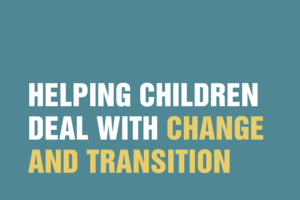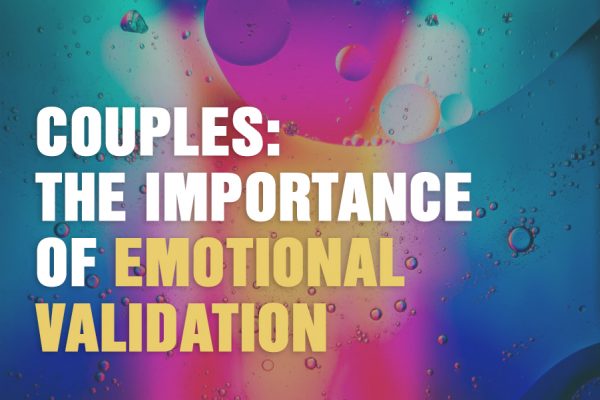For many people, receiving some level of attention – to a greater or lesser degree, depending on your individual personality – is a basically pleasurable experience. In general terms, being noticed can instinctively make people feel good, as it provides us with validation. However, when a person constantly craves the attention of others, and that need is affecting their thoughts, decisions and behaviours, they may be dealing with Attention Seeking Disorder.
Attention seeking behaviour is often viewed negatively, particularly when it comes from an adult. Our society tends to focus more on the actual behaviour than the reasons behind it. Because of this, Attention Seeking Disorder is a widely misunderstood condition. In fact, it stems from a range of factors, and can have a serious impact on the life of the person dealing with it, as well as those around them.
Do you find yourself constantly fishing for compliments, or feel the need for recognition in order to be happy? Have you noticed something in your own behaviour that made you think, ‘do I have Attention Seeking Disorder?’
Here at The Awareness Centre, our team of over 300 therapists has experience and deep knowledge of many mental health conditions including Attention Seeking Disorder, and our experts are proficient at identifying when a person’s attention seeking behaviour becomes problematic.
In this post, we’ll take a closer look at what Attention Seeking Disorder is, and give some useful examples of how it may manifest in everyday life. We’ll then move on to discussing what may cause it, and highlight some associated conditions, before recommending the best path to take if you feel the need to speak to a professional.
What is Attention Seeking Disorder?
In adults, Attention Seeking Disorder is defined as excessive and repeated attempts by an individual to make themselves the centre of attention; in other words, when a person constantly tries to direct other people’s focus toward themselves. It can be common for people around the individual to find them egotistical, an exhibitionist, or ‘a show-off’. The behaviours associated with Attention Seeking Disorder may occur consciously or unconsciously, depending on the individual nature of the case, but almost always manifest in efforts to gain admiration or validation in some way.
According to an investigation by Francine Edwards, Attention Seeking Disorder is characterised by having its motivation rooted in jealousy, loneliness, or low levels of self-esteem. Research conducted in 2018 found that attention seeking behaviour over an extended period can damage or destroy intimate relationships, and the American Psychiatric Association suggest that Attention Seeking Disorder can cause rapid mood swings and emotional shifts.
Examples of Attention Seeking Behaviour
Though they are always driven at gaining the attention of other people, the behaviours associated with Attention Seeking Disorder can take many forms. Sometimes, attention seeking behaviour is clear to see. For example, a person making direct and inflammatory comments; at other times, the behaviour can be more subtle or difficult to identify. Although this list is not exhaustive, a person with Attention Seeking Disorder may demonstrate some or all of the following common behaviours.
- Making deliberately provocative comments, with the person appearing to desire to make other people uncomfortable, or ‘push the boundary’
- Behaving in a controversial way, perhaps overt promiscuity or blatant exhibitionism, or other things that may be seen as ‘showing off’
- Constantly dragging the topic or focus of conversation back onto themselves
- Frequently boasting about their own actions, possessions, wealth, or experiences
- A preoccupation with social media, especially with posting content designed to provoke a reaction and gain maximum engagement
- Using self-deprecation as a method of eliciting praise from others
- Behaving ‘dramatically’, or tending to ‘overblow’ negative experiences into complete disasters
What Causes Attention Seeking Disorder?
Usually, Attention Seeking Disorder will be the result of an imbalanced or unhealthy emotional state. The most common reason for a person to exhibit attention seeking behaviour is low self-esteem: that is, someone suffering from a negative perception of themselves. This perception needs buoying by the attention they receive from other people, and they will likely only feel ‘okay’ if they are receiving this attention and validation from others. This may present in a similar way to depression, with the person seeming to often be ‘under a dark cloud’; conversely, low self-esteem can engender aggressive, antisocial or violent behaviour.
Loneliness and jealousy are two other common causes of Attention Seeking Disorder. For example, a person struggling with lockdown isolation may turn to social media as a means of gaining validation, or a jealous ex-partner may conduct themselves with overt, even flagrant, promiscuity.
Attention Seeking Disorder is a mental health condition that may require counselling or therapy. However, it should be said that, for many people, some amount of attention seeking behaviour is a perfectly ‘normal’, natural, or conventional tendency. Humans are instinctively social creatures, and the desire for validation is a natural emotional urge. On the other hand, attention seeking behaviour can sometimes be the result of feelings of helplessness, or represent a cry for help.
Mental health conditions which are often associated with Attention Seeking Disorder include:
- Histrionic Personality Disorder. This is part of the group of “Cluster B” or “dramatic” personality disorders, of which attention seeking behaviour is a common sign. People with this condition may also act impulsively, lack empathy, or display frequent mood swings.
- Borderline Personality Disorder (BPD). BPD is another of those “Cluster B” personality disorders, often presenting a constant need for validation. People with BPD may have trouble controlling themselves, or struggle with relationships. They can also exhibit an extreme fear of abandonment, an ‘everyone is against me’ mentality, self-harm, or fits of intense anger.
Additional links have been drawn between Attention Seeking Disorder and other mental health conditions, including:
- Bipolar Disorder
- Attention Deficit Hyperactivity Disorder (ADHD)
- Narcissistic Personality Disorder
- Oppositional Defiant Disorder
- Intermittent Explosive Disorder
When to Speak to a Professional
Attention Seeking Disorder is a mental health condition capable of having a significant impact, affecting many areas of a person’s life such as work and relationships, among others. Knowing the signs and causes of Attention Seeking Disorder is a great first step toward identifying the condition in yourself, or in a loved one.
If you suspect that you are struggling with Attention Seeking Disorder, and you’d like a second opinion, or simply just to talk the condition over, The Awareness Centre is here for you. Our safe, confidential and medically-trained therapy services are available to help you identify Attention Seeking Disorder and manage its symptoms. Reach out to us today to speak with one of our friendly and professional team members.







